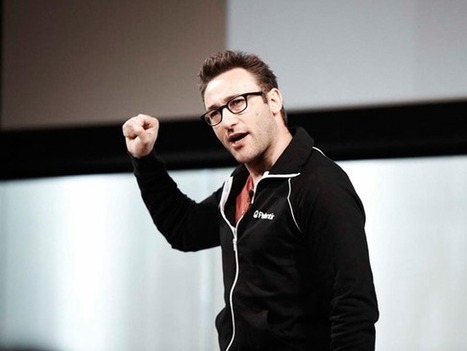
This is 2nd revision of Ozzie's post with both of us collaborating on making more complete.It is in form I will share with my members. Andy Bourey
For those who didn't make the Chair and member gathering here's a good summary of Simon's thinking beyond why. He shared the thoughts that will be in his new book out in Sept. 2013.
There is much to think about. He reflects some of Lee Thayer's seminal thinking around Communication.
In the spirit of Chair collegiality
Ozzie
Group Chairman. Vistage 29
San Diego CA
ozzie.gontang@vistage.com
Cell. 619-895-9273
Excellent Blog by Terry Morawski
Beyond Why with Simon Sinek
Simon Sinek led Thursday morning’s programming at the Vistage Think Big Conference in Grapevine, Texas, with a base of pop science and a healthy dose of common sense leadership. Sinek, author of the book “Start with Why” and Ted sensation(he has the 7th most watched video ever on the popular site), has taken a departure from his original work. The high energy Englishman is working on a new book focusing on the chemicals he says drive human behavior. Sinek’s new book is out in September, but he remains mum on the title.
Sinek boiled it down quickly, saying “What does it require to be a leader? Followers.” In other words, every organization has leaders. Truly effective leaders are less common. His current work revolves around what makes leaders, and their organizations, exemplary. He says our natural desire to be inspired by our leaders and to work cooperatively is not often met in modern companies. Sinek painted a picture of employees who are so unsupported and worried about layoffs that they are ineffective at their basic job requirements.
So, what is Sinek’s recipe for human drive? In a Q&A segment, he joked he studied anthropology in college and has no other credentials. I trust he’s being a bit modest, but it’s a good joke. He credited four chemicals that rule our behavior:
Endorphins – the shot of energy we receive to complete physical tasks. He said the feeling during exercise is the closest comparison in the modern world. Endurance can be a valuable skill in the business world.
Dopamine – the pleasurable feeling when seeking and receiving rewards. Sinek credits this to early man’s hunt for food. In the modern world, Dopamine is released when we check our cellphone or email, make a sale, meet a goal, or even eat and drink. Although Dopamine can lead to risky behavior, it is present any time you receive an anticipated reward. He encouraged leaders to be careful about which behaviors are rewarded because you will end up with a significant amount of that behavior. This can be selfish and not always a good chemical.
Serotonin – the chemical behind pride. Sinek tells us workers want the same type of safety and support from their company which they get from their family. He challenged us, “Stop saying your company is like a family, it is a family.” This is a selfless- good chemical.
Oxytocin – this is responsible for our feelings of love and friendship. Sinek says we must approach work relationships, especially hiring, with the same type of measured, emotionally-driven decision processes. To simplify, he values an informal dinner meeting to get to know someone more than a number-crunched, surveyed, and achievement-oriented hiring process. This is about trust and honesty and are they a good fit for our family. Not about reliability.
Must have a purpose, belonging and protection and metrics to measure progress. Oxytocin is contagious: Treat your people well and they will treat each other well. Good leader is a good parent and trusted. Leadership has authority without context- Crew has context without authority. “I intend” is a great concept instead of permission or authority. Give responsibility together.
Ultimately, Sinek put together a convincing argument for not forgetting the humanity of your employees. Too often, he says, we get focused on numbers. People are hard-wired, physically and emotionally, to want to work toward collective goals which they believe in. Unfortunately, building and maintaining these dynamic, honest relationships with staff and customers is hard work and must be adopted at all levels.
Perhaps his speech was best encapsulated in an African proverb he quoted,
“To go fast, go alone. To go far, go together.”
Building a great company of people is about “Who Belongs” and “Peer Recogniton”
Cortisol is about Alert for danger. It is a bad chemical. It causes stress and shuts down many things, including growth and immune system. Not belonging causes cortisol and shuts down Oxytocin, chemical of trust.
Sinek went on to say that if your employees children are failing, it could be your fault. Employees with cortisol can take it home and pass on to children. Employee surveys do not work. Do it personally!
To find out culture people look at the values. Personality traits that apply to all of them reflect the culture.
Posted by Terry Morawski on January 24, 2013.
Revised by Andy Bourey on February 10, 2013.
Tags: behavior, dopamine, Employee Happiness
Examples used by Simon of two companies whose leaders care and the ROI it creates:



 Your new post is loading...
Your new post is loading...






